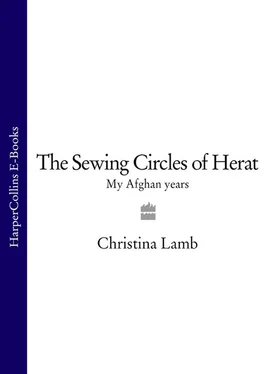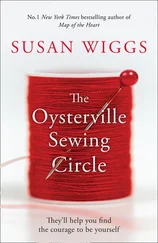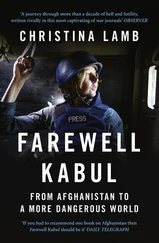1 ...6 7 8 10 11 12 ...18 We have small rebellions. Maybe you do not know we are forbidden to wear make-up under the burqa but I have a red lipstick. One of my friends runs a secret beauty salon in her bedroom.
In my family I am the eldest and apart from my sister Latifa, I have two brothers. One is a tailor, the other still a student but in school now all he learns is the Koran and the Hadith, not science or foreign languages. Science was my favourite subject. I wanted to be a science teacher.
Life here is very miserable. We have no rights at all and we have asked many times other countries of the world for help but they have been silent. Now we heard about this attack on the towers in America with many people dead and my father says the Americans will come and remove the Taliban but we do not dare hope. I wonder, maybe the world will think all Afghans are terrorists and we are not. It is the Arabs, who drive around in their Datsuns with black windows and live in big houses behind high walls in Wazir Akbar Khan and buy their foods in tins in the import shops in Chicken Street. If you saw how we lived, you would know we cannot be terrorists, we are the forgotten people.
We do not have schools, the doors of education are closed on all, especially us. I don’t know if we will ever go to school again. We cannot paint or listen to music. The Taliban ran their tanks over all the televisions.
We asked the world, are we not human beings? Do we not deserve to live in peace? Can we not have rights as women in other countries?
I do not know what you want me to write to you. If I start writing I will fill all the paper and my eyes will fill with tears because in these seven years of Taliban no one has asked us to write about our lives. In my mind I make a picture of you and your family. I wonder if you drive a car, if you go out with friends to the cinema and restaurants and dance at parties. Do you play loud music and swim in lakes? One day I would like to see and I would also like to show you a beautiful place in my country with mountains and streams but not now while we must be hidden. Maybe our worlds will always be too far apart.
Marri
1 According to the US State Department, Afghanistan’s opium crop in 2000 was 3,656 tonnes, 72 percent of the world’s total, compared to 31 percent in 1985. Production fell in 2001 after the Taliban banned the growing of opium poppies, but in 2002, following the fall of the Taliban, Afghanistan became the world’s biggest opium producer again.
2 The combination of US and Soviet aid probably made Afghanistan the world’s largest recipient of personal weapons during the 1980s, according to figures from the 1991 SIPRI Yearbook on World Armaments, with total weapon imports greater than those of Iraq. For more details see Barnett Rubin.
3 Population figures in Afghanistan can only be estimates and are all hotly disputed by the various ethnic groupings. The CIA World Fact Book 2001 puts the population at 26.8 million of which 38 percent are Pashtun, 25 percent Tajik, 19 percent Hazara, 6 percent Uzbek and 12 percent other.
4 For more details see the Human Rights Watch report of November 1998 – ‘Afghanistan: The Massacre in Mazar-i-Sharif’.
Unlike other wars, Afghan wars become serious only when they are over
SIR OLAF CAROE
TRAVELLING IN AFGHANISTAN was like wandering through the shadows of shattered things. Khalil Hassani’s story had meant more to me than he realised for Afghanistan had left its own dark place in my mind. When he spoke of Kandahar, I pictured a land the colour of dust, its old caravan trails littered with burnt-out tanks and dotted with bombed terracotta villages which from a distance resembled the ruins of some forgotten civilisation and probably looked little different to when Alexander the Great founded the city in 330 BC giving it his name, Iskandar in Arabic. But I saw something else too.
The first time I went to Kandahar I was on the back of a mullah’s motorbike and thought it the most desolate place on earth. Nothing but tufts of coarse grass grew on the stony plains and the distant mountains were barren and flesh-coloured. The turban wound round my head offered scant protection from the ancient grit driven into my eyes and mouth on a scorching desert wind that was said by Kandaharis to be so hot as to grill a fish held on an upturned palm.
It was 1988 and the giggling mullahs on motorbikes who taught me to tie a turban and shared their rations of fried okra and stale nan bread with me under Soviet tank-fire, would later become the Taliban. No one had heard of the Taliban then, it was just a word in Pashto that meant ‘seekers of knowledge’ or religious students. And not many journalists went to Kandahar in those days. The journey to Afghanistan’s second biggest city was complicated and dangerous, starting off from the remote desert town of Quetta where the earth seemed in a constant state of tremor and to which flights were sporadic.
Most reporters covered the war from Peshawar where there was a five-star hotel and the seven mujaheddin parties fighting the Russians had their headquarters, making it easy to arrange trips ‘inside’, as we called getting into Afghanistan. There was an American Club where one could drink Budweisers, eat Oreo Cookie ice-cream and listen to middle-aged male correspondents in US Army jackets with bloodstains and charred bullet holes on the back hold court with stories of conflict and ‘skirt’ from Vietnam to El Salvador. Their eyes had seen so much that they saw nothing, they knew the name and sound of every weapon ever invented, their faces were on the leathery side of rugged and even at breakfast there was Jim Beam on their breath. One of them wore hearing aids which he informed me loudly was because of ‘bang bang’; most had children in various places but never carried their photographs, and all of them went to the Philippines for R and R.
The Kandahar desert had been turned into a battlefield.
It was different for me. I was a young girl in a place where women were regarded as property along with gold and land – the three zs of the Pashtuns, zan, zar and zamin – and kept hidden away behind curtained doorways. The closest I had ever come to war was doing a report for Central Television News in Birmingham on a cannon used in the Battle of Waterloo that ‘Local Man’ had rescued from the sea. I found the weapon names confusing with all the acronyms and numbers and for a long time couldn’t even tell the difference between incoming and outgoing fire. I was young enough to believe I could change the world by writing about the injustices that I saw and foolish enough to think that I could be a witness without bearing any responsibility. What I knew of the Afghans was a romanticised vision distilled from Rudyard Kipling’s Kim and various nineteenth-century British accounts such as the first by Mountstuart Elphinstone who went out to parley with the king on behalf of the East India Company in 1809 and wrote, ‘their vices are revenge, envy, avarice, rapacity and obstinacy; on the other hand, they are fond of liberty, faithful to their friends, kind to their dependents, hospitable, brave, hardy, laborious and prudent.’
After having taken various ‘resistance tours’ inside from Peshawar, I decided to go to Kandahar largely because I liked the name. Alexander the Great had conquered many peoples and founded a number of cities on his long march from Macedonia towards India, most of which bore some variation of his name. But there was something magical about the name Kan -dahar, which pronounced with the stress on the first syllable and a long breath at the end, seemed to convey a sense of longing for the place.
Читать дальше












